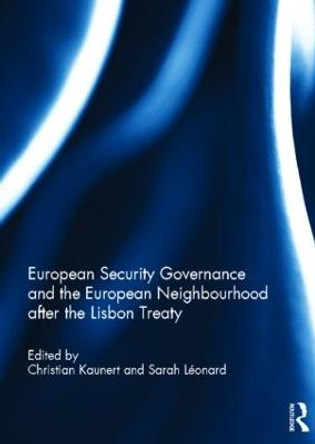Description
The EU has often been considered to be a weak security actor. However, any assessment of the EU's role in international security is underpinned by a specific understanding of security. This book is based on a broad understanding of security. We consider that security concerns are increasingly triggered by challenges such as terrorism, climate change, mass migration flows, and many other 'non-traditional' security issues. This book tries to capture these aspects of the EU's fast changing security policies following the entry into force of the Lisbon Treaty on 1 December 2009.
There are several common themes stemming from a combined reading of the chapters. Firstly, the EU has sought to simultaneously pursue its security objectives and spread its values, such as democracy, the rule of law, and human rights, by encouraging reforms in its neighbourhood. However, it is increasingly evident that there are tensions and contradictions between these two objectives, which can be illuminated and better understood by considering another strand of literature, with which there has been little engagement in EU studies to date, namely the literature on human security. This book is the first to analyse these hugely topical developments in European security after the Lisbon Treaty.
It was published as a special issue of Perspectives on European Politics and Society.
About the Author
Christian Kaunert is Senior Lecturer in EU Politics & International Relations at the University of Salford, UK and Marie Curie Senior Research Fellow at the European University Institute Florence, Italy. Sarah Leonard is Lecturer in International Security at the University of Salford, UK and Marie Curie Senior Research Fellow at Sciences-Po Paris, France.
Book Information
ISBN 9781138109216
Author Christian Kaunert
Format Paperback
Page Count 160
Imprint Routledge
Publisher Taylor & Francis Ltd
Weight(grams) 453g









